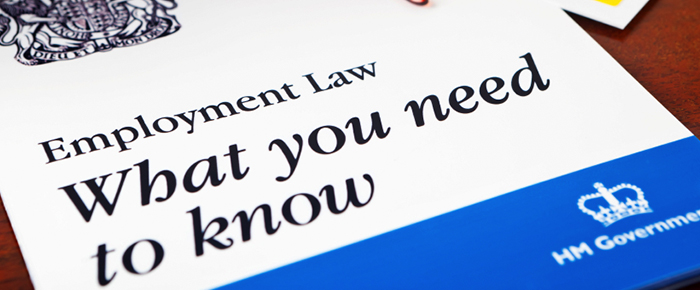Blog

Employment Law ‘Need-to-Knows’ for Small Business Owners
If you’re starting up a small business, or your existing business is expanding, you could find yourself having to recruit members of staff for the first time. Hiring is not just a matter of sifting through a few CVs - you’ll have to get clued-up on employment law.
You’ll need to make sure you’re familiar with all kinds of legislation ranging from health and safety to age discrimination to employment contracts to product liability, and the list goes on…
In fact the whole thing can get so complex you might think you’ll need a qualified solicitor to make sure your processes are air tight – but the good news is that if you’re a small business, there are only a few rules and regulations you’ll need to get to grips with. If you’re a larger business or corporation then there are many great solicitor firms who can guide you through the process – for example, Barlow Robbins employment department have specialists on hand to help you get to grips with the law, in no time at all.
So here’s a rundown of the employment law need-to-knows for small business owners…
Contracts
This is the first, and potentially most complex, area you’ll have to familiarise yourself with and you’ll have to make sure your contracts properly set out each employees’ duties, responsibilities, rights and working conditions.
There are other elements a contract should cover, such as:
- Implied terms – this covers areas such as normal custom and practice, conduct after the contract is made, and the officious bystander clause. An example of this would be a term allowing you to demote an employee, where the demotion would be seen as justifiable by an impartial third party and may have been executed in the past.
- Collective agreements – this is when you have an agreement with employee representatives, such as a trade union or staff association, that allows negotiations of the terms and conditions of things like pay or working hours.
- Employment particulars– if a contract lasts for at least one month, you must give employees a written statement of employment particulars that includes the main conditions of employment. This must be provided within two months of an employee’s start date.
It’s worth noting, however, that aside from the particulars, employment contracts don’t have to be written as employees enter a contract with an employer immediately after they accept a job offer.
Statutory rights
Another thing you’ll have to consider are an employee’s statutory (‘required by the Government’) rights, which include things such as:
- The right to a written contract.
- An itemised pay slip detailing gross salary, deductions and net pay.
- To be paid at least the national minimum wage.
- The right to at least 28 days paid holidays (including bank holidays).
- An entitlement to additional leave in certain circumstances - maternity leave, for example.
- The right to request flexible working.
- The right to paid maternity leave (in some cases).
- The right to statutory sick pay commencing the fourth consecutive day they don’t make it to work through illness.
- The right to a workplace pension if aged between 22 and pension age and earning more than £10,000 per year. It’s worth noting that this doesn’t become law until 2018 but has begun rolling out in certain sectors already.
If you don’t comply with these statutory rights you could be on the receiving end of a big fine.
As an employer you’re also responsible for your employee’s wellbeing while at work and so you must have procedures in place to cover health and safety issues, discrimination, bullying and maternity, paternity and adoption leave, as well as dismissal, disciplinary and grievance rules set out in writing.
Your workplace must comply with the Health and Safety Act, with a reasonable health and safety policy that includes a risk assessment and a system of recording injuries and accidents at work.
You’ll also need to make sure you have sufficient liability insurance in place to cover accidents involving employees and customers if necessary.
Freelancers
If you employ any freelancers or agency staff, there are another set of rules and regulations you’ll need to consider as these workers won’t be classed as employees. This includes the basics like the right to be paid at least the minimum wage, as well as limits on working time and health and safety considerations.
It’s a good idea to produce an employee handbook so best practices can be adhered to and to ensure no-one is in any doubt as to what is and isn’t required and expected of them.
For more information on employment law, check out ACAS and GOV.UK



Comments